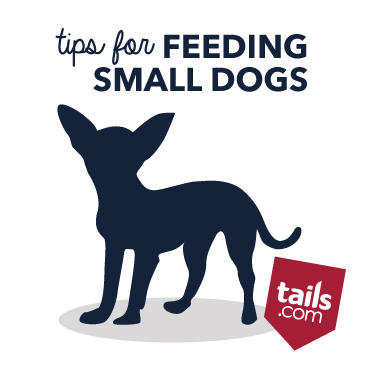Small dogs are a popular choice in the UK and with good reason, they fit easily into family life as well as providing options for owners of smaller homes or residents in more urban areas. Whilst they will all have their own individual requirements, here is some general nutritional advice to help find the right food for these smaller breeds.
Getting the kibble size right for their mouth is the first step with feeding small dogs. They can really struggle to eat large pieces of food as they’re hard for them to pick up and difficult for them to crunch into small enough particles to swallow. Choking and being sick are common problems with small dogs for this reason.
Small dogs can be a bit picky about what they eat – a lot of small breeds don’t have the appetite of larger dogs, and they can be a little lazier and more interested in comfy beds and attention than their food. Some also learn tactics to get their owners to bring out better and better options to tempt their appetite.
Proportionately, small dogs need more food and higher nutrient levels than larger breeds and this is particularly important during the growth stage when, as puppies, they have much higher metabolic rates and need energy-rich, balanced nutrient diets for correct growth and development. However, it is essential to measure out exactly how much food to give your small dog as it can seem very little in comparison to our own diets, so overfeeding is a common problem leading to excessive weight and fat gain.

Small breeds are fortunate in that they often don’t suffer from joint conditions like arthritis until much later in life than other breeds. They are also more likely to have a good digestive system according to a recent French study which showed that larger dogs will often have poorer digestion as they have nearly half the intestinal mass of smaller dogs to efficiently digest and absorb nutrients.
However, small breeds are not immune from other conditions like skin problems, diabetes and heart disease where veterinary treatments and suitable dietary plans can all be effectively scaled down to smaller dogs to help treat the condition.
Small dogs can have a much longer life than larger dogs, some small breeds can live up to 14-16 years old. So, keeping them a healthy weight, feeding them a balanced nutritional diet that they enjoy and suits their digestion alongside regular health check-ups can ensure they have the best long life possible.
Do you want to feed your dog food that is tailored to your dog’s specific nutritional needs? Click here.


We have had two months of the Tails food for our dog Finlay, a Maltese Terrier mix. He liked the food at first, now he doesn’t touch it unless he is really hungry and often only eats one portion a day.
We are not sure if the size of his Tails food mix (some of the mix id large chunks of biscuit), or the composition of it, has anything to do with it as we bought a bag of Royal Canin Adult Mini kibble and he scoffs the lot.
Do you have any advice or comment?
Hi Lain,
can you please send an email to hello@tails.com and then we can sort this out for you.
Kind regards,
Sophie
Hi,
We’ve just about finished our first month’s trial with you and Loki has really enjoyed his wet food. Unfortunately we haven’t had the same luck with the dry food you have supplied, from monitoring he will only eat it when softened or extremely hungry. We think it’s too large/chunky for him and possibly too hard?? I realise you don’t do wet only (which is a shame) but do you do smaller kibble?? He’s a Cockerpoo (toy poodle).
Kind regards.
Hi Jason – please send us an email at hello@tails.com 🙂
Hi,
Daisy, my Pug, loves your dry food but struggles with the larger kibble and now only eats the smaller bits and leaves the larger bits altogether. Is it possible to just get her kibble made of just the really small bits please.
If you email us at hello@tails.com, we’ll be able to help you 🙂